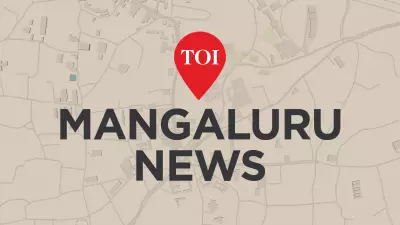
The Delhi High Court has taken a significant step in monitoring the investigation into the 2020 Northeast Delhi riots, directing the police to provide a comprehensive status update on their probe into the violent incidents that shook the capital.
Court's Directive to Delhi Police
Justice Anoop Kumar Mendiratta, presiding over the case, has asked the Delhi Police to submit a detailed status report regarding their investigation into the 2020 communal violence. This directive came during a hearing on February 13, 2024, where the court emphasized the need for transparency and progress in the long-pending cases.
The court's intervention follows concerns about the pace and thoroughness of investigations into the riots that occurred in February 2020, which resulted in 53 fatalities and hundreds of injuries. The violence had erupted in Northeast Delhi areas amid protests against the Citizenship Amendment Act (CAA).
Background of the 2020 Delhi Riots
The Northeast Delhi riots, which took place between February 23 and February 29, 2020, represented one of the worst communal violence incidents the capital has witnessed in decades. The unrest began as clashes between supporters and opponents of the Citizenship Amendment Act quickly escalated into widespread violence across multiple neighborhoods.
According to official records, the violence led to 53 confirmed deaths and left more than 400 people injured. The destruction included numerous homes, businesses, and vehicles being damaged or destroyed in the affected areas. The economic impact was substantial, with losses running into crores of rupees.
Judicial Scrutiny and Ongoing Investigations
The High Court's latest directive underscores the judiciary's continued oversight of the investigation process. The court has been monitoring multiple cases related to the riots, ensuring that justice is delivered to all affected parties regardless of their community background.
Police investigations into the riots have been ongoing for four years, with several charge sheets filed in various cases. However, many victims and civil society organizations have expressed concerns about the pace of justice and the comprehensive nature of the investigations.
The Delhi Police has established multiple Special Investigation Teams (SITs) to handle different aspects of the riots cases. These teams have been working on identifying perpetrators, collecting evidence, and building cases for prosecution.
Significance of Court Monitoring
The court's active monitoring of the investigation serves several crucial purposes in the pursuit of justice. It ensures accountability in the investigative process, provides reassurance to victims and their families, and maintains public confidence in the judicial system's ability to handle complex communal violence cases.
Regular status updates required by the court help maintain momentum in the investigations and prevent cases from being delayed or forgotten. This judicial oversight is particularly important given the sensitive nature of the incidents and their impact on communal harmony in the capital.
The next hearing in the matter is scheduled for March 2024, when the Delhi Police is expected to present their detailed status report to the court. This report will likely outline the progress made in various cases, challenges faced during investigations, and the roadmap for completing pending inquiries.
As the judicial process continues, all stakeholders await the police's comprehensive update, hoping it will bring clarity to the investigation status and timeline for concluding these long-pending cases related to one of Delhi's most tragic episodes of communal violence.





